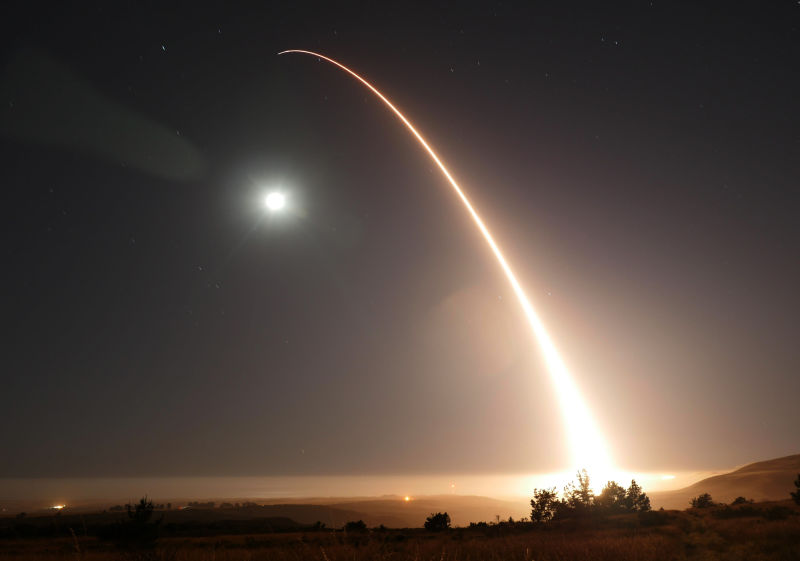
Russia has deployed its first regiment of hypersonic nuclear-capable missiles. Russia’s defense minister, Sergei K. Shoigu, reportedly informed President Vladimir Putin this week that the first missile regiment was operational. The strategic missile forces chief, Gen. Sergei Karakayev, has confirmed that the new missile has been deployed with a military unit in the town of Yasny on the border with Kazakhstan.
The new Russian weapon system, called Avangard, is comprised of a hypersonic glide vehicle designed to sit atop an intercontinental ballistic missile. Hypersonic glide vehicles are boosted on a rocket to altitudes of between 25 miles (40 km) and 62 miles (100 km) before detaching to glide along the upper atmosphere toward their target. The lower trajectory makes them much harder to detect early with radar and allows them to maneuver sharply as they approach impact.
President Putin unveiled the Avangard and five other new-generation weapons in his annual state-of-the-nation address in March 2018. The weapons announced in recent years have all been systems designed to reach the United States. Other projects include a long-range torpedo that could reach the American West Coast, and a nuclear-powered cruise missile.
The United States has also been developing hypersonic weapons. The United States Air Force has two hypersonic prototypes in testing that are scheduled to be operational in 2022. Other parts of the Pentagon, including the Defense Advanced Research Projects Agency, are working on other hypersonic initiatives, including defenses against hypersonic weapons. While development is on an accelerated pace, they are still many years down the road.
The last remaining arms control treaty between the United States and Russia, called New START, expires soon after the next presidential inauguration in 2021. The treaty limits strategic nuclear missile launchers and deployed warheads for both nations. The Trump administration has said that extending the treaty will only be acceptable if includes China and other nuclear powers. China has said it is not interested in any agreement that puts limits on its arsenal.
